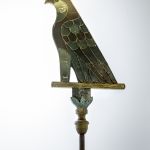
26 July – 30 August
Herbert von Karajan set a further accent in the Verdi repertoire: for the first time, in 1979, Verdi’s Aida was on the programme of the Salzburg Festival.

26 July – 31 August
The new production of Mozart’s Die Zauberflöte in the Felsenreitschule/Summer Riding School, headed by James Levine and Jean-Pierre Ponnelle, turned out to be a sensation.
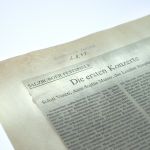
24 July – 30 August
One of Herbert von Karajan’s great aspirations was to promote young talents. Artists like Anne-Sophie Mutter, Agnes Baltsa, Mariss Jansons, Seiji Ozawa and Riccardo Muti owed much to him for the great boost he gave their careers.
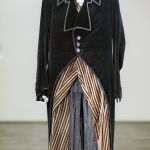
25 July – 30 August
Nestroy’s Der Talisman directed by Otto Schenk, set and costumes by Jürgen Rose and with a brilliant cast – Helmuth Lohner as Titus Feuerfuchs, Vilma Degischer, Dolores Schmidinger, Senta Wengraf, Christiane Hörbiger, Heinrich Schweiger and others – was a resounding success with the public.
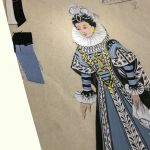
26 July – 30 August
Herbert von Karajan had already brought out Verdi’s Don Carlo at the Salzburg Festival in 1958, then directed by Gustaf Gründgens.
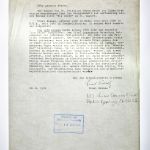
26 July – 30 August
In 1969, chief press officer Hans Widrich had motivated Otto Sertl, head of music at ORF (Austrian Broadcasting Corporation), to join the Festival with the newly-founded ORF Radio Symphony Orchestra.
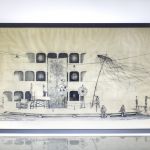
26 July – 30 August
In 1965, Giorgio Strehler had made his début at the Festival with his acclaimed Entführung aus dem Serail/Abduction from the Seraglio. The production remained in the repertoire until the mid-1970s. In 1972, Strehler, at Karajan’s wish, was nominated as consultant.

26 July – 30 August
Straight drama experienced a boom at the Festival in the 1970s, with a focus on contemporary Austrian drama. With Der Ignorant und der Wahnsinnige, a series of ground-breaking Thomas Bernhard premières was started in 1972 – primarily through Claus Peymann – and that with a genuine scandal at the kick-off.
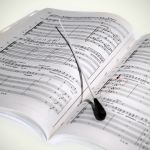
25 July – 30 August
In 1971, Riccardo Muti celebrated not only his début at the Salzburg Festival and on the rostrum of the Vienna Philharmonic Orchestra with Gaetano Donizetti’s Don Pasquale, but also his international breakthrough as an opera conductor.
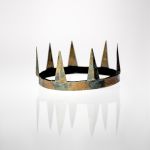
26 July – 30 August
Oskar Werner directed Shakespeare’s Hamlet at the Landestheater/State Theatre, playing the title role himself at the head of a prominent cast including Ewald Balser, Fred Liewehr, Achim Benning, Matthias Fuchs, Peter Matić, Karl-Heinz Windhorst and Christiane Schröder.
1970s
In the 1970s, Herbert von Karajan brought about a further enhancement of the Salzburg Festival’s international flair. Salzburg became the hot spot for world stars such as Jon Vickers, Nicolai Ghiaurov, Mirella Freni, Plácido Domingo, José Carreras, Anna Tomowa-Sintow and more. The presence of the international jet set also began to shape the Festival’s image. At the same time, the Salzburg Festival became one of the most important economic factors in the region.
However, critical voices soon became louder. Oscar Fritz Schuh’s demand from the 1950s of opening up the Festival to new art forms had faded away unheard. In 1969, the composer Gerhard Wimberger’s article in the Salzburger Nachrichten newspaper, ‘Breaking out of stagnation and routine’, stirred up discussions. In 1971, the association Szene der Jugend (Youth Scene) launched an avant-garde festival as counterpoint to the main Festival. In the late 1970s, a ‘political counter-public’ finally became established; a variety of cultural groups joined forces in the early 1980s to form the ARGE Rainberg (today: ARGEkultur), which saw itself as a protest movement as well.
With the death of Bernhard Paumgartner in 1971, the Salzburg Festival lost an artist who had helped to shape the institution for more than 50 years. He had initiated the concert sector of the Festival, especially the Serenades and the Mozart Matinees, in which he placed ‘his’ Camerata and the Mozarteum Orchestra, the two Salzburg orchestras, at the centre of events. He integrated the early and unknown Mozart into the repertoire and until the end of his days never ceased to be the discoverer of forgotten works.
Josef Kaut, appointed to the Festival’s Board of Directors in 1950 at Gottfried von Einem’s suggestion, followed Paumgartner as Festival President; Friedrich Gehmacher and Gerhard Wimberger were appointed to the Board of Directors. At Karajan’s wish, Giorgio Strehler was also engaged as artistic consultant. Josef Kaut meanwhile succeeded in persuading the Austrian author Thomas Bernhard to work together with the Salzburg Festival. After a huge scandal in 1972 at the first performance of Der Ignorant und der Wahnsinnige/The Ignoramus and the Madman, until 1986 four other Bernhard plays were premièred in Salzburg, which undisguisedly held up a mirror to the Festival organization and to Austrian society. The appointment of the director of the ORF (Austrian Broadcasting Corporation) music department, Otto Sertl, as General Secretary of the Festival in 1978 was also instrumental in giving a fresh impetus to contemporary music; also later, through his successor as General Secretary, Franz Willnauer.
When Friedrich Gehmacher died in 1976, Heinrich Wiesmüller took over his seat in the Board of Directors. Together with Hans Landesmann he set the course in the late 1980s for a fundamental new direction of the Salzburg Festival.
